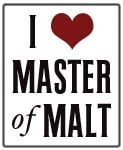Scotch Whisky: Its Past and Present, David Daiches (1969)
 Much that was around in 1969 still feels contemporary today: the music can be heard everywhere, everyday; the fashion has come, gone and come again; the ideals, ever resilient, continue to be subjected to relentless pressures but have never been defeated in over four decades. The whisky world, however, was a very different place.
Much that was around in 1969 still feels contemporary today: the music can be heard everywhere, everyday; the fashion has come, gone and come again; the ideals, ever resilient, continue to be subjected to relentless pressures but have never been defeated in over four decades. The whisky world, however, was a very different place.
In 1969 there were 14 grain distilleries and 108 malt distilleries. Were I to boast of a lovely Ben Nevis or Lochside I had last night, you would have been right to ask, “malt or grain?” Port Ellen, Rosebank, and Hillside were all in production. Only a handful of malt whiskies could be found outside of Scotland. Thirty Speyside malts used the suffix –Glenlivet when their spirit was bottled, including Balvenie-Glenlivet. Scotch whisky, mostly blended but also malt, was just beginning a decade of unprecedented growth before a dramatic crash. Today, well… perhaps little has changed (call me in ten years!)
David Daiches was born in Sunderland but grew up in Edinburgh where his family moved when he was young. He studied at the University of Edinburgh and then Oxford. He published his first work examing “place and meaning” in poetry before WWII broke out at which point he began producing pamphlets and writing speeches for the British Embassy in Washington, DC. He continued to publish prolifically and taught at ten universities in the UK, US and Canada (shout out to McMaster!), founded the English department at the University of Sussex, and chaired the judges of the Booker prize.
Apparently, he somehow found time to fish.
His 29th published book, and first on the topic, Scotch Whisky: Its Past and Present does not read like a technical study of the whisky industry nor a critique or evaluation of its histories, errors and victories. He even introduces it with the disclaimer, “This book does not claim to be a complete and authoritative account of all aspects of Scotch whisky.” And while Daiches’ can be observed wearing his academic hat as objective researcher throughout, Scotch Whisky is a love-letter to whisky: facts delivered without judgement or cynicism, undue favour or anti-industrial bias that thoroughly soaks and weighs down so many contemporary works on the subject.
This illuminates a final major difference between 1969 and today. Today writing has been democratised in such a way that one needn’t be a white (Jewish) male from the academy to publish 160 pages on whisky. Travel journalists can do it. Bartenders can do it. Bloggers can do it. You can do it. I can do it.
But what would we make? And would it come close to capturing the sheer magnitude of its subject with any lasting value? Daiches’ work remains profoundly relevant. It is still an insightful and invaluable resource in the documented social and cultural histories of Scotch whisky. And if 2,796 Whiskies to Try Before You Die is in it’s 11th impression in 40 years then I will happily stick my slipper in my slurper.
Originally posted HERE





No comments:
Post a Comment